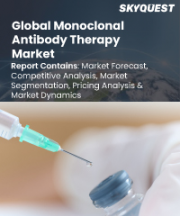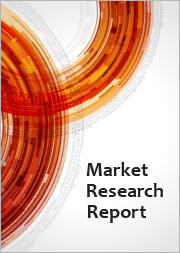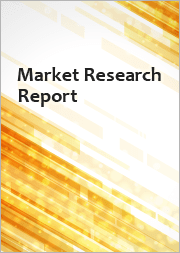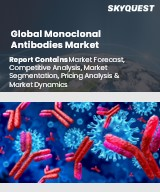
|
시장보고서
상품코드
1830981
단일클론항체 치료제(mABs) 시장Monoclonal Antibody Therapeutics (mABs) Market |
||||||
세계 단일클론항체 치료제(mABs) 시장 규모는 2024년 2억 4,914만 달러에서 2031년 6억 1,960만 달러로 확대될 것으로 예상되며, 2025-2031년 CAGR은 13.9%로 예측됩니다.
시장 인사이트 및 분석가 관점: 집중적인 연구개발과 만성질환 유병률 증가는 향후 몇 년간 단일클론항체 치료제(mABs) 시장 예측에 큰 영향을 미칠 것으로 예측됩니다.
단일클론항체(mAbs)는 특정 항원을 특이적으로 표적으로 하는 항체의 균일한 집합체입니다. 치료용 mAbs의 생산은 완전한 생물학적 활성 분자를 만들기 위해 항체 펩타이드 사슬의 글리코실화, 적절한 접힘, 배향 및 공유 결합에 필요한 세포 메커니즘을 제공하는 포유류 발현 시스템을 필요로 합니다. 이중 특이성 항체나 삼중 특이성 항체와 같은 혁신적인 항체 방식은 단일 항원에 대한 여러 에피토프를 인식할 수 있는 반면, 단일 도메인 항체는 조직에 더 쉽게 침투할 수 있습니다. 이러한 고급 항체 유형은 항체 치료제의 효능을 향상시키고, 그 적용 영역을 넓힐 수 있습니다. 또한, 이러한 항체는 항체-약물 복합체를 형성하여 특정 세포 유형에 대한 화학요법제의 표적 효율을 높일 수 있습니다. 다양한 질환에 대한 mAB 기반 의약품의 생산이 시장 성장을 가속하고 있습니다. 제조업체의 전략적 제품 출시는 시장에 유리한 기회를 제공합니다. 또한, mAbs 치료제 시장에서는 mAB를 포함한 병용약물 개발이 활발해지고 있습니다.
시장 성장 촉진요인
다양한 질환에 대한 mAB 기반 의약품 생산의 성장세
단일클론항체 치료제(mAB)는 암, 자가면역질환, 대사성 질환 등 다양한 질환의 치료에 활용되고 있습니다. 바이오 제약기업과 연구기관이 개발한 이들 의약품은 높은 특이성, 효과적인 표적화 능력, 최소한의 독성 및 부작용으로 인해 세계 시장에서 큰 주목을 받고 있습니다. 그 결과, mAB 치료제 생산 능력 증가가 단일클론항체 치료제(mABs) 시장의 성장을 가속할 것으로 예측됩니다.
시장 기회
제조업체의 전략적 개발을 통한 혁신적인 제품 출시
치료용 mABs 제조업체의 제품 출시를 통한 유기적 성장은 가까운 시일 내에 단일클론항체 치료제(mABs) 시장을 강화할 가능성이 높습니다. 아다지오 테라퓨틱스(Adagio Therapeutics, Inc.)는 2022년 3월, 코로나19의 노출 전후 예방과 치료 모두에서 통계적으로 유의미한 주요 평가변수를 달성한 최초의 단일클론항체 ADG20(ADINTREVIMAB)의 출시를 발표하고, 미국 긴급사용승인(EUA)을 신청했습니다.
또한, M&A에 의한 무기적 성장으로 새로운 치료용 mAB의 도입이 기대됩니다. 예를 들어, 2023년 7월, Eli Lilly는 심대사성 질환 치료에 특화된 임상 단계의 비상장 바이오 제약 회사인 Versanis의 인수를 발표했습니다. 이번 인수로 Eli Lilly는 Versanis의 주요 제품 포트폴리오에 접근할 수 있게 되었습니다. 이 포트폴리오에는 현재 BELIEVE 임상 2b상에서 단독 및 세마글루타이드와의 병용요법으로 비만 및 관련 합병증 환자에서 지방량을 감소시키고 근육량을 유지하며 결과를 개선할 가능성이 있는 비마그루맙(bimagrumab)이 포함되어 있습니다. 개선할 수 있습니다. 이러한 요인들은 향후 몇 년 동안 단일클론항체 치료제(mABs) 시장의 성장에 크게 기여할 것으로 예측됩니다.
단일클론항체 치료제(mABs) 시장 동향
미국 국립보건원(NIH)의 2021년 보고서에 따르면, Roche와 Regeneron(제약회사)은 경증 및 중등도 코로나19 환자를 대상으로 단일클론항체(mABs) 병용요법을 평가하기 위한 임상 2/3상 시험을 개시했습니다. 양사는 카시리비맙과 임데비맙이라는 두 개의 단일클론 항체를 결합한 칵테일 치료제 'REGN-COV2'를 코로나19 치료제로 평가했습니다. 이들 기업은 이 mAB 병용요법이 입원을 70% 감소시키고, 특히 12세 이상 소아(체중 40kg 이상)에게 효과적일 것으로 기대하고 있습니다. 연구진은 단일클론항체의 추가적인 치료적 조합을 적극적으로 모색하고 있습니다. 예를 들어, 일라이 릴리가 개발한 범라니비맙과 에테세비맙은 2022년 코로나19에 대해 좋은 임상 결과를 보였습니다. 따라서 다양한 질환에 대한 단일클론항체를 이용한 병용요법 동향은 향후 몇 년 동안 단일클론항체 치료제(mABs) 시장에서 큰 견인력을 얻을 것으로 예측됩니다.
전략적 인사이트
보고서의 세분화 및 연구 범위: 단일클론항체 치료제(mABs) 시장 분석은 제품, 용도, 유통 채널의 각 부문을 고려하여 수행됩니다.
제품별로는 유전자 재조합 mAB, 항체 약물 복합체, 이중특이성 및 다중특이성 mAB, 바이오시밀러, 기타로 분류됩니다. 용도별로 보면, 단일클론항체치료제(mABs) 시장은 암, 자가면역질환, 기타로 구분됩니다. 자가면역질환 부문은 다시 류마티스 관절염, 건선, 궤양성 대장염, 기타로 나뉩니다. 유통 채널은 병원 내 약국, 소매 약국, 기타로 구분됩니다.
제품별로 보면, 2022년 단일클론항체 치료제(mABs) 시장에서 가장 큰 점유율을 차지한 것은 유전자 재조합 mABs 부문이었습니다. 항체 약물 복합체 부문은 예측 기간 동안 18.5%의 가장 빠른 CAGR을 보일 것으로 예측됩니다. ACS 출판사의 보고서에 따르면, 치료용 재조합 단클론 항체는 현재 효과적인 치료법이 없는 광범위한 질병에 대한 효과적인 치료 전략을 개발하는 것을 목표로 하는 최첨단 생물 의학 연구입니다. 토실리주맙은 관절염, 특발성 관절염, 류마티스 관절염(RA) 치료에 사용되는 재조합 mAB의 일종입니다. 또한, 재조합 mAB는 자가면역질환 및 암 치료에도 사용할 수 있습니다. 베바시주맙은 현재 유방암, 폐암, 대장암, HIV-1, 세균독소 감염/반응, SARS-CoV-2 및 에볼라 바이러스 감염 치료에 사용되는 재조합 mAB입니다.
항체 약물 복합체(ADC)는 화학요법과 면역요법을 결합한 치료제로 빠르게 부상하고 있는 치료제입니다. NIH의 보고에 따르면, ADC는 주로 면역글로불린 G(IgG)를 기반으로 하고 있으며, 현재까지 13개의 ADC가 미국 식품의약국(FDA)의 승인을 받았습니다. 또한, 90개 이상의 ADC가 현재 임상 개발 중이거나 임상시험 중입니다.
따라서 ADC에 대한 규제 당국의 승인과 희귀질환을 대상으로 하는 치료 전략에 대한 진행 중인 임상시험은 예측 기간 동안 특히 항체 약물 복합체 부문에서 단클론 항체 치료제(mABs) 시장의 성장을 가속할 것으로 예측됩니다.
지역별 분석 : 지역별 분석에서는 북미, 유럽, 아시아태평양, 중동 및 아프리카, 중남미, 유럽, 아시아태평양, 중동 및 아프리카, 중남미에 대한 단일클론항체 치료제(mABs) 시장 보고서를 다룹니다. 2022년에는 북미가 세계 단일클론항체 치료제(mABs) 시장에서 가장 큰 점유율을 차지할 것으로 예측됩니다. 아시아태평양은 2022-2030년 가장 높은 CAGR을 보일 것으로 예측됩니다. 북미에서는 미국이 가장 큰 시장 점유율을 차지하고 있으며, mAB 치료제의 신속한 제품 승인 절차의 혜택을 누리고 있습니다. BioMed Central 저널에 게재된 연구에 따르면, 2019년 12월 현재 미국 FDA가 승인한 치료용 mAB는 79개에 달할 전망입니다. 이 중 30개는 암 치료를 목적으로 합니다. 2021년 5월, FDA는 중증 코로나19 환자 치료에 외래 사용을 목적으로 하는 새로운 치료용 mAB-Sotrovimab-의 EUA를 승인했습니다. 2022년 2월, FDA는 일라이 릴리가 개발한 오미크론 변이체를 표적으로 하는 베브테로비맙에 대한 EUA를 발행했습니다. 또한, 에테세비맙도 미국 FDA가 승인한 치료용 mAB의 한 예입니다.
단일클론항체 치료제(mABs) 시장 조사 범위
산업 발전과 미래 기회: 단일클론항체 치료제(mABs) 시장의 주요 기업들이 추진하고 있는 몇 가지 전략적 이니셔티브에 대한 개요는 다음과 같습니다.
2023년 1월, 아스트라제네카는 유럽연합(EU)에서 Evusheld의 승인을 받았습니다. Evusheld는 tixagevimab(AZD8895)과 cilgavimab(AZD1061) 두 가지 장시간 작용하는 항체의 복합제입니다.
2023년 8월, 리제네론 파마슈티컬스(Regeneron Pharmaceuticals Inc.)는 Biomedical Advanced Research and Development Authority(BARDA)와 코로나19에 대한 차세대 단일클론항체 치료제의 임상 개발, 제조 및 규제 승인을 촉진하는 계약을 체결했습니다. 허가를 촉진하기 위한 계약을 체결하였습니다.
경쟁 구도 및 주요 기업: 단일클론항체 치료제(mABs) 시장의 주요 기업으로는 GlaxoSmithKline, F. Hoffmann-La Roche, Bayer AG, Amgen, Novartis, AbbVie, Bristol-Myers Squibb, Bristol-Myers Squibb, Janssen Pharmaceuticals, Merck KGaA. Janssen Pharmaceutical, Merck KGaA, AstraZeneca 등이 있습니다. 단일클론항체 치료제(mABs) 시장 보고서에는 시장 내 주요 기업의 성과를 평가하기 위해 기업의 포지셔닝 및 집중도 분석이 포함되어 있습니다.
목차
제1장 서론
제2장 주요 요약
- 주요 인사이트
- 시장 매력 분석
제3장 조사 방법
제4장 단일클론항체 치료제(mABs) 시장 구도
- PEST 분석
- 생태계 분석
- 밸류체인 벤더 리스트
제5장 단일클론항체 치료제(mABs) 시장 : 주요 시장 역학
- 주요 시장 성장 촉진요인
- 주요 시장 성장 억제요인
- 주요 시장 기회
- 향후 동향
- 성장 촉진요인과 억제요인의 영향 분석
제6장 단일클론항체 치료제(mABs) 시장 : 세계 시장 분석
- 단일클론항체 치료제 : 세계 시장 개요
- 단일클론항체 치료제 : 세계 시장과 2030년까지 예측
제7장 단일클론항체 치료제(mABs) 시장 - 매출 분석 : 제품별, 2020년-2030년
- 유전자 재조합형 mAB
- 항체 약물 결합체
- 이중 특이성 및 다중 특이성 mAB
- 바이오시밀러
- 기타
제8장 단일클론항체 치료제(mABs) 시장 - 매출 분석 : 용도별, 2020년-2030년
- 암
- 자가면역질환
- 기타
제9장 단일클론항체 치료제(mABs) 시장 - 매출 분석 : 유통 채널별, 2020년-2030년
- 원내 약국
- 소매 약국
- 기타
제10장 단일클론항체 치료제(mABs) 시장 - 매출 분석 : 지역별, 2020년-2030년
- 북미
- 미국
- 캐나다
- 멕시코
- 유럽
- 독일
- 프랑스
- 이탈리아
- 스페인
- 영국
- 기타 유럽
- 아시아태평양
- 호주
- 중국
- 인도
- 일본
- 한국
- 기타 아시아태평양
- 중동 및 아프리카
- 남아프리카공화국
- 사우디아라비아
- 아랍에미리트(UAE)
- 기타 중동 및 아프리카
- 중남미
- 브라질
- 아르헨티나
- 기타 중남미
제11장 업계 상황
- 인수합병(M&A)
- 계약, 제휴 및 합작투자(JV)
- 신제품 출시
- 사업 확대와 기타 전략적 개발
제12장 경쟁 구도
- 주요 기업의 히트맵 분석
- 기업 포지셔닝과 집중도
제13장 단일클론항체 치료제(mABs) 시장 : 주요 기업 개요
- F. Hoffmann-La-Roche
- AstraZeneca
- Bayer AG
- Merck KGaA
- GlaxoSmithKline plc
- Amgen
- Novartis AG
- AbbVie Inc.
- Janssen Pharmaceuticals
- Bristol-Myers Squibb Company
제14장 부록
LSH 25.10.27The market for monoclonal antibody therapeutics (mABs) is anticipated to expand from US$ 249.14 million in 2024 to US$ 619.6 million by 2031, reflecting a projected CAGR of 13.9% from 2025 to 2031.
Market Insights and Analyst Perspective:Intensive research and development efforts, along with a rising incidence of chronic diseases, are expected to significantly influence the forecast for the monoclonal antibody therapeutics (mABs) market in the upcoming years.
A monoclonal antibody (mAbs) is a uniform collection of antibodies that specifically target designated antigens. The manufacturing of therapeutic mAbs necessitates a mammalian expression system that provides the cellular machinery required for glycosylation, proper folding, orientation, and covalent binding of antibody peptide chains to create complete and biologically active molecules. Innovative antibody modalities, such as bispecific and trispecific antibodies, can recognize multiple epitopes on a single antigen, while single-domain antibodies can more easily penetrate tissues. These advanced antibody types can improve the efficacy of antibody therapeutics, thereby broadening their application areas. Additionally, these antibodies can form antibody-drug conjugates to enhance the targeting efficiency of chemotherapy agents towards specific cell types. The production of mAB-based drugs for various diseases is driving market growth. Strategic product launches by manufacturers present lucrative opportunities in the market. Moreover, the trend of combination drugs that include mABs is gaining traction in the mAbs therapeutic market.
Market Driver
Growth in Production of mAB-Based Drugs for Various Diseases
Monoclonal antibody therapeutics (mABs) are utilized to treat a diverse array of diseases, including cancer, autoimmune disorders, and metabolic conditions. These drugs, developed by biopharmaceutical companies and research institutions, have garnered significant attention in the global market due to their high specificity, effective targeting capabilities, and minimal toxicity and side effects. Consequently, an increase in the production capacity of mAB therapeutics is expected to propel the growth of the monoclonal antibody therapeutics (mABs) market.
Market Opportunity
Innovative Product Launches Through Strategic Developments by Manufacturers
Organic growth through product launches by manufacturers of therapeutic mABs is likely to enhance the monoclonal antibody therapeutics (mABs) market in the near future. In March 2022, Adagio Therapeutics, Inc. announced the launch of ADG20 (ADINTREVIMAB), the first monoclonal antibody to achieve primary endpoints with statistical significance for both pre-and post-exposure prophylaxis and treatment of COVID-19, seeking US Emergency Use Authorization (EUA).
Additionally, inorganic growth through mergers and acquisitions is expected to lead to the introduction of new therapeutic mABs. For example, in July 2023, Eli Lilly announced the acquisition of Versanis, a private clinical-stage biopharmaceutical company focused on treating cardiometabolic diseases. This acquisition allows Eli Lilly to access Versanis's core product portfolio, which includes a monoclonal antibody product named bimagrumab, currently being evaluated in the "BELIEVE Phase 2b study" as a standalone treatment and in combination with semaglutide for its potential to reduce fat mass, preserve muscle mass, and improve outcomes for individuals with obesity and related complications. These factors are anticipated to significantly contribute to the growth of the monoclonal antibody therapeutics (mABs) market in the coming years.
Monoclonal Antibody Therapeutics (mABs) Market Trends
Combination Drugs Featuring Monoclonal Antibodies (mABs)As per the National Institute of Health (NIH) 2021 report, Roche and Regeneron (pharmaceutical companies) initiated a phase 2/3 clinical trial to assess combination monoclonal antibodies for patients with mild to moderate COVID-19. They are evaluating "REGN-COV2," a cocktail drug that combines two monoclonal antibodies-casirivimab and imdevimab-for COVID-19 treatment. These companies anticipate that this combination mAB drug could reduce hospitalization by 70% and be particularly effective for children over 12 years old (weighing more than 40 kg). Researchers are actively exploring more therapeutic combinations of monoclonal antibodies. For instance, bamlanivimab and etesevimab developed by Eli Lilly demonstrated positive clinical outcomes for COVID-19 in 2022. Therefore, the trend of combination drugs utilizing monoclonal antibodies for various diseases is expected to gain significant traction in the monoclonal antibody therapeutics (mABs) market in the coming years.
Strategic Insights
Report Segmentation and Scope:The analysis of the monoclonal antibody therapeutics (mABs) market has been conducted by considering the following segments: product, application, and distribution channel.
The market is categorized by product into recombinant mABs, antibody-drug conjugates, bispecific and multispecific mABs, biosimilars, and others. By application, the monoclonal antibody therapeutics (mABs) market is segmented into oncology, autoimmune diseases, and others. The autoimmune diseases segment is further divided into rheumatoid arthritis, psoriasis, ulcerative colitis, and others. The distribution channel segmentation includes hospital pharmacies, retail pharmacies, and others.
In terms of product, the recombinant mABs segment held the largest share of the monoclonal antibody therapeutics (mABs) market in 2022. The antibody-drug conjugates segment is projected to exhibit the fastest CAGR of 18.5% during the forecast period. According to a report by ACS Publications, therapeutic recombinant monoclonal antibodies represent cutting-edge biomedical research aimed at developing effective strategies to treat a wide range of diseases for which no effective treatments currently exist. Tocilizumab is an example of a recombinant mAB used to treat arthritis, idiopathic arthritis, and rheumatoid arthritis (RA). Furthermore, recombinant mABs can also be utilized for treating autoimmune diseases and cancer. Bevacizumab is a recombinant mAB currently employed in the treatment of breast, lung, and colorectal cancers, as well as HIV-1, bacterial toxin infections/reactions, and infections from SARS-CoV-2 and the Ebola virus.
Antibody-drug conjugates (ADCs) are a rapidly emerging class of therapeutic agents that combine chemotherapy and immunotherapy. According to a NIH report, ADCs are primarily based on immunoglobulin G (IgG), with 13 ADCs having received approval from the US Food and Drug Administration (FDA) to date. Additionally, over 90 ADCs are currently in clinical development or trials.
Thus, the regulatory approvals of ADCs and ongoing clinical trials for treatment strategies targeting rare diseases are expected to drive the growth of the monoclonal antibody therapeutics (mABs) market, particularly in the antibody-drug conjugates segment during the forecast period.
Regional Analysis:Geographically, the Monoclonal Antibody Therapeutics (mABs) market report encompasses North America, Europe, Asia Pacific, the Middle East & Africa, and South & Central America. In 2022, North America held the largest share of the global monoclonal antibody therapeutics (mABs) market. The Asia Pacific region is projected to experience the highest CAGR from 2022 to 2030. Within North America, the US represents the largest market share, benefiting from expedited product approval processes for mAB therapeutics. As of December 2019, 79 therapeutic mABs had been approved by the US FDA, according to a study published in the BioMed Central journal. Among these, 30 are intended for cancer treatment. In May 2021, the FDA granted EUA for a new therapeutic mAB-Sotrovimab-designed for outpatient use in treating individuals with severe COVID-19. In February 2022, the FDA issued EUA for bebtelovimab, developed by Eli Lilly and Company, targeting the Omicron variant. Additionally, etesevimab is another example of therapeutic mABs approved by the US FDA.
Monoclonal Antibody Therapeutics (mABs) Market Report Scope: Industry Developments and Future Opportunities:Several strategic initiatives by leading players in the monoclonal antibody therapeutics (mABs) market are outlined below:
In January 2023, AstraZeneca received approval for Evusheld in the European Union (EU). Evusheld is a combination of two long-acting antibodies-tixagevimab (AZD8895) and cilgavimab (AZD1061). The US government supported the development of this product through federal funding from the Department of Health and Human Services, the Administration for Strategic Preparedness and Response, and the Biomedical Advanced Research and Development Authority.
In August 2023, Regeneron Pharmaceuticals, Inc. entered into an agreement with the Biomedical Advanced Research and Development Authority (BARDA) to facilitate clinical development, manufacturing, and regulatory licensure for next-generation monoclonal antibody therapy against COVID-19. Under this agreement, Regeneron aims to collaborate with BARDA to evaluate, further develop, and manufacture this therapy, as well as conduct regulatory activities.
Competitive Landscape and Key Companies:Prominent companies in the monoclonal antibody therapeutics (mABs) market include GlaxoSmithKline, F. Hoffmann-La Roche, Bayer AG, Amgen, Novartis, AbbVie, Bristol-Myers Squibb, Janssen Pharmaceutical, Merck KGaA, and AstraZeneca. The monoclonal antibody therapeutics (mABs) market report includes an analysis of company positioning and concentration to assess the performance of key players in the market.
Table Of Contents
1. Introduction
- 1.1 Scope of the Study
- 1.2 Market Definition, Assumptions and Limitations
- 1.3 Market Segmentation
2. Executive Summary
- 2.1 Key Insights
- 2.2 Market Attractiveness Analysis
3. Research Methodology
4. Monoclonal Antibody Therapeutics Market Landscape
- 4.1 Overview
- 4.2 PEST Analysis
- 4.3 Ecosystem Analysis
- 4.3.1 List of Vendors in the Value Chain
5. Monoclonal Antibody Therapeutics Market - Key Market Dynamics
- 5.1 Key Market Drivers
- 5.2 Key Market Restraints
- 5.3 Key Market Opportunities
- 5.4 Future Trends
- 5.5 Impact Analysis of Drivers and Restraints
6. Monoclonal Antibody Therapeutics Market - Global Market Analysis
- 6.1 Monoclonal Antibody Therapeutics - Global Market Overview
- 6.2 Monoclonal Antibody Therapeutics - Global Market and Forecast to 2030
7. Monoclonal Antibody Therapeutics Market - Revenue Analysis (USD Million) - By Product, 2020-2030
- 7.1 Overview
- 7.2 Recombinant Monoclonal Antibodies (mABs)
- 7.3 Antibody-Drug Conjugates
- 7.4 Bi-Multi Specific Monoclonal Antibodies (mABs)
- 7.5 Biosimilars
- 7.6 Others
8. Monoclonal Antibody Therapeutics Market - Revenue Analysis (USD Million) - By Application, 2020-2030
- 8.1 Overview
- 8.2 Cancer
- 8.3 Autoimmune Diseases
- 8.3.1 Rheumatoid Arthritis (RA)
- 8.3.2 Psoriasis
- 8.3.3 Ulcerative Colitis
- 8.3.4 Others
- 8.4 Others
9. Monoclonal Antibody Therapeutics Market - Revenue Analysis (USD Million) - By Distribution Channel, 2020-2030
- 9.1 Overview
- 9.2 Hospital Pharmacies
- 9.3 Retail Pharmacies
- 9.4 Others
10. Monoclonal Antibody Therapeutics Market - Revenue Analysis (USD Million), 2020-2030 - Geographical Analysis
- 10.1 North America
- 10.1.1 North America Monoclonal Antibody Therapeutics Market Overview
- 10.1.2 North America Monoclonal Antibody Therapeutics Market Revenue and Forecasts to 2030
- 10.1.3 North America Monoclonal Antibody Therapeutics Market Revenue and Forecasts and Analysis - By Product
- 10.1.4 North America Monoclonal Antibody Therapeutics Market Revenue and Forecasts and Analysis - By Application
- 10.1.5 North America Monoclonal Antibody Therapeutics Market Revenue and Forecasts and Analysis - By Distribution Channel
- 10.1.6 North America Monoclonal Antibody Therapeutics Market Revenue and Forecasts and Analysis - By Countries
- 10.1.6.1 United States Monoclonal Antibody Therapeutics Market
- 10.1.6.1.1 United States Monoclonal Antibody Therapeutics Market, by Product
- 10.1.6.1.2 United States Monoclonal Antibody Therapeutics Market, by Application
- 10.1.6.1.3 United States Monoclonal Antibody Therapeutics Market, by Distribution Channel
- 10.1.6.2 Canada Monoclonal Antibody Therapeutics Market
- 10.1.6.2.1 Canada Monoclonal Antibody Therapeutics Market, by Product
- 10.1.6.2.2 Canada Monoclonal Antibody Therapeutics Market, by Application
- 10.1.6.2.3 Canada Monoclonal Antibody Therapeutics Market, by Distribution Channel
- 10.1.6.3 Mexico Monoclonal Antibody Therapeutics Market
- 10.1.6.3.1 Mexico Monoclonal Antibody Therapeutics Market, by Product
- 10.1.6.3.2 Mexico Monoclonal Antibody Therapeutics Market, by Application
- 10.1.6.3.3 Mexico Monoclonal Antibody Therapeutics Market, by Distribution Channel
- 10.1.6.1 United States Monoclonal Antibody Therapeutics Market
- 10.2 Europe
- 10.2.1 Germany
- 10.2.2 France
- 10.2.3 Italy
- 10.2.4 Spain
- 10.2.5 United Kingdom
- 10.2.6 Rest of Europe
- 10.3 Asia-Pacific
- 10.3.1 Australia
- 10.3.2 China
- 10.3.3 India
- 10.3.4 Japan
- 10.3.5 South Korea
- 10.3.6 Rest of Asia-Pacific
- 10.4 Middle East and Africa
- 10.4.1 South Africa
- 10.4.2 Saudi Arabia
- 10.4.3 U.A.E
- 10.4.4 Rest of Middle East and Africa
- 10.5 South and Central America
- 10.5.1 Brazil
- 10.5.2 Argentina
- 10.5.3 Rest of South and Central America
11. Industry Landscape
- 11.1 Mergers and Acquisitions
- 11.2 Agreements, Collaborations, Joint Ventures
- 11.3 New Product Launches
- 11.4 Expansions and Other Strategic Developments
12. Competitive Landscape
- 12.1 Heat Map Analysis by Key Players
- 12.2 Company Positioning and Concentration
13. Monoclonal Antibody Therapeutics Market - Key Company Profiles
- 13.1 F. Hoffmann-La-Roche
- 13.1.1 Key Facts
- 13.1.2 Business Description
- 13.1.3 Products and Services
- 13.1.4 Financial Overview
- 13.1.5 SWOT Analysis
- 13.1.6 Key Developments
- 13.2 AstraZeneca
- 13.3 Bayer AG
- 13.4 Merck KGaA
- 13.5 GlaxoSmithKline plc
- 13.6 Amgen
- 13.7 Novartis AG
- 13.8 AbbVie Inc.
- 13.9 Janssen Pharmaceuticals
- 13.10 Bristol-Myers Squibb Company
14. Appendix
- 14.1 Glossary
- 14.2 About The Insight Partners
- 14.3 Market Intelligence Cloud






